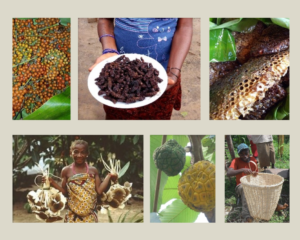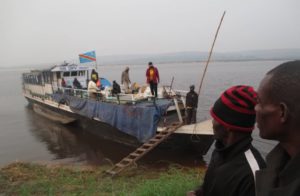
Founded in 2004 to support the livelihoods and rights of Pygmy communities, DIPY is one of the few organizations established and run by Pygmies themselves. Pygmies are Indigenous peoples inhabiting the Congo basin whose culture and livelihoods are deeply tied to the forests.
Since periods of colonialism, Pygmies have been considered illegal occupants on their ancestral lands. Still today, they are extremely marginalized within the society. For example, authorities failed to appropriately investigate the massacre of 66 Pygmies that took place a year ago. Pygmies do not have the means to participate in decision-making processes over their lands as in the establishment of almost all protected areas in the DRC. Their forest-dependent culture is threatened by increasing loggings and a rapidly modernizing culture. Deforestation has already led to a loss of livelihoods and growing poverty.
It was only in 2021 when DRC’s legislature passed legislation designed to ensure its Indigenous peoples the same basic rights as other Congolese citizens (this law remains in congress and has not been signed or enforced by the federal government).
DIPY works to secure the customary land and resource rights of Pygmy communities. The dignity of Pygmy women is at the core of DIPY’s work. As women play a key role in the Pygmy society, their empowerment supports the well-being of the communities as a whole. Therefore, after a six-month feasibility study on the “non-timber forest product” (NTFP) value chain, DIPY and Land is Life joined forces to launch a pilot initiative entitled Economic Empowerment of Pygmy Women in 2019. The initiative promotes the traditional role of Pygmy women in their food systems through the gathering and selling of NTFPs. This means that by receiving a fair income from their sustainably gathered products, the Pygmy communities have better means to fight poverty and maintain their forest-based economy through their own strategies. The initiative trains Pygmy women to develop their own economic and social systems of benefit sharing, trade, and sustainable use of resources.
With the pilot initiative, three women-led cooperatives have been established in three Pygmy communities – Inongo, Bolingo, and Ikita – in the province of Mai-Ndombe, western DRC. The cooperatives aim at improving the financial and material autonomy of Pygmy women by supporting them in aggregating and selling their traditional goods, such as honey, handicrafts, fish, mushrooms, nuts, edible insects, fruits and berries, at larger scales. The cooperatives are associated with canteens where communities can buy basic manufactured goods at low prices or through traditional barter.

The initiative has supported the communities in renting a space for the storage and sales of the products in Kinshasa as well as in building their own wooden river boat to facilitate the transportation of goods to the markets. Literacy and accounting training has been organized to build the capacity of the women to manage their cooperatives efficiently.
So far, 1,812 Pygmy women have directly benefited from the initiative, and other indirect beneficiaries in the Mai-Ndombe province count up to 474,325 people. Besides economic empowerment, the program also encourages the Pygmies to preserve their traditional knowledge and practices that have for centuries maintained a large part of the Congo Basin’s biodiversity.
The initiative is also increasing the motivation and commitment of other forest-dependent communities to protect forests for their proven added value vis-à-vis slash-and-burn agriculture. It thus contributes to reducing deforestation and, consequently, the negative effects of climate change.
DIPY’s initiative has the potential to be replicated across other Pygmy communities in the DRC. The long-term goal is to elevate the capacity and representation of the Pygmies at all levels of decision-making so that they will be able to maintain their role as the “guardians of the forest”.